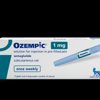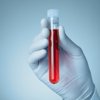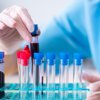Fritextsökning
Artiklar per år
Innehållstyper
-

AI-företag köper tillgång till vetenskapliga studier – ”Svårt att reagera som forskare”
Stora förlag för vetenskapliga tidskrifter har i miljonaffärer sålt tillgång till studier till techbolag som utvecklar AI-verktyg. Reaktionerna bland svenska forskare är blandade.
-

Ny kontroversiell studie kopplar fetmaläkemedel till självmordstankar
I både EU och USA har misstänkta kopplingar mellan GLP1-analoger och självmordstankar utretts – och avfärdats. Nu väcks frågan till liv igen av en ny studie.
-

Anna Törner: Yes, I Am Sick, But Not Weak
”People often say that someone who is ill only has one wish—to get better. But I think that is not true. Someone who is ill also longs to be understood, to be respected, to not have their identity overshadowed by their condition”, writes Anna Törner in a column.
-

Studie: Hjärtbox gav färre komplikationer än kylväska vid transplantation
En svenskutvecklad metod för att förvara donerade hjärtan inför transplantation minskar risken för patienten att drabbas av tidig hjärtsvikt, enligt en ny studie från bland annat Göteborgs universitet.
-

Utvecklar metod för att individanpassa transplanterad vävnad
Att transplantera organ innebär flera risker. Göteborgsföretaget Verigraft försöker hitta sätt att minimera riskerna genom att individanpassa vävnader med hjälp av blod.
-

The investor: “The major common diseases are hot again”
She has previously been voted Investor of the Year and will now be moderating The Future of Swedish & Danish Life Science congress. We check the temperature of the industry with Nina Rawal from Trill Impact Advisory.
-

Thumbs down for lecanemab in the EU – “Very surprised”
The Azheimer's drug lecanemab has received a negative assessment from the European Medicines Agency’s Committee for Medicinal Products for Human Use (CHMP), according to an announcement made by the Agency last week. Bioarctic’s CEO Gunilla Osswald describes the reactions after the announcement as a surprise and disappointment.
-

Healthcare study: Alzheimer’s blood test shows high accuracy
A blood test for identifying Alzheimer’s has now been tested in the general healthcare setting. According to the researchers, the test was 90% accurate in making a diagnosis.
-

Studie: AI kan avslöja kommande demens
Ett nytt AI-program uppges kunna bedöma risken för framtida Alzheimersrelaterad demens – genom analys av personers tal.
-

EMA review confirms a risk of new cancer after CAR-T
CAR-T cancer therapies can, in rare cases, induce secondary cancers. The European Medicines Agency (EMA) now recognises this and requires a warning label to be attached to the product information and patients to be followed up for life.
-

Nobel Prize winner Torsten Wiesel turns 100: “Old men like me should use their experience to help the young”
In 1955, a young Torsten Wiesel jumped on a boat to the US and embarked on a fabulous career as a neuroscientist, crowned with a Nobel Prize for his work. Now 100 years old, he looks back on an intense life and his upbringing in Stockholm, Sweden, which shaped his desire to help the vulnerable in society.
-

Innovative start-up helps doctors, scientists and industry balance coagulation risks
For many doctors caring for seriously ill patients, for example, in stroke units and cancer wards, maintaining the life-saving balance between bleeding and thrombosis is an ongoing challenge. In the late 1980s, scientists at Maastricht University in the Netherlands developed an innovative method, the thrombin generation assay (TGA), which provides a complete overview of a physiological process crucial for maintaining normal haemostasis.
-

“Conducting research at universities is becoming more and more like working at a research hotel”
The government wants Swedish research to focus on excellence and innovation, but can the two be combined? Life Science Sweden talks to Anna Falk, a professor at Lund University, about research policy, the constant hunt for funding in academia and what constitutes ‘fine research’.
-

Bayer has cut 1,500 roles – so far
German chemical and pharmaceutical group Bayer cut more than 1,500 roles in the first quarter alone– and most of them were management positions.
-

Carl Borrebaeck – professor and serial entrepreneur with a taste for speed
Award-winning cancer researcher, the founder of many listed companies, and constantly in the academic and commercial spotlight for decades. However, Carl Borrebaeck, Professor of Immunotechnology at Lund, is not yet satisfied. “We have a new, potentially super exciting project in the pipeline,” he says.
-

Ancient DNA provides new insights – “The immune system lost its job”
Ancient bone remains from our ancestors have provided new insights into the prevalence of multiple sclerosis. By looking back in time, researchers can provide a possible explanation for why the disease is more prevalent in northern Europe.
-

KI’s freezer fiasco investigated: A chain of failures
A chain of combined technical and organisational shortcomings caused the freezer breakdown at the Karolinska Institute during the Christmas holidays, destroying more than 47,000 samples. This was the conclusion of an internal investigation.
-

List: The coolest names in biotech
Hairy beasts, volcanic material and space strolling stand out on a US list of the best biotech company names, and on a list of the coolest names for pharmaceuticals, a Swedish, or at least Swedish-British, drug came out on top.
-

Framtida forskningsanläggningen ESS ska ge forskarna nya insikter på atomnivå
ESS i Lund ska bli ett viktigt verktyg för materialforskare i framtiden. Vi besöker anläggningen för att se hur långt de kommit.
-

Lista: Coolaste namnen inom biotech
Håriga bestar, vulkaniskt material och månpromenader sticker ut på en amerikansk lista över de bästa företagsnamnen inom biotech. Och på en annan lista, över de coolaste namnen på läkemedel, blev det svenskt, eller åtminstone svensk-brittiskt, i toppen.
-

Nocebo – the evil twin that makes you feel worse
The placebo effect is well known in healthcare, but not so its opposite: nocebo. “The effect is small, but it can have major repercussions,” says Uppsala researcher Charlotte Blease, co-author of a book on the phenomenon.
-

Study: Popular diabetes treatment is not associated with thyroid cancer
Concerns raised about an association between GLP-1 analogues, used to treat diabetes and obesity, and an increased risk of thyroid cancer are not supported by an extensive Scandinavian study.
-

Blodprov för Alzheimers får genombrottsstatus i USA
Ett blodprov som utvecklas av läkemedelsföretagen Roche och Eli Lilly som stöd vid diagnosticering av Alzheimers sjukdom har nu tilldelats genombrottsstatus i USA.
-

Specific proposals and targets top the universities’ desired priorities
What are the universities’ expectations for the update of the national life science strategy? Life Science Sweden posed the question to representatives from Karolinska Institutet and Sahlgrenska Academy.